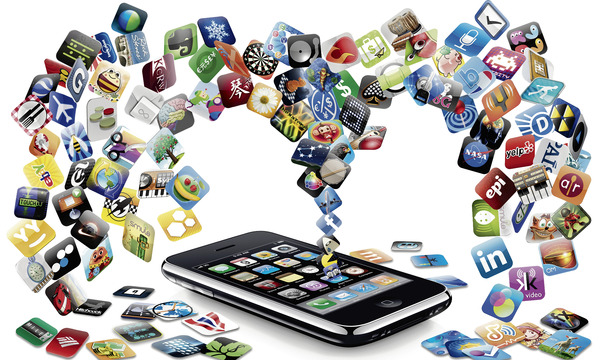2013 saw the rise and rise of mobile commerce, the stock market launch (and surge in share price) of social media sites such as Twitter, LinkedIn & Facebook, the introduction of wearable technologies like Google Glass, and high demand for Bitcoin took its valuation to $1,000.
Google shares reached over $1,000, LinkedIn shares are trading at over 300% of their original value, Twitter and Facebook shares are strong too. Overall, the year was very exciting and reached heights that caused critics to suspect a tech crunch just around the corner.
On the downside, 2012 stars like Zynga and Groupon have struggled to maintain their share price and profits, and Samsung and Apple went to war over various patents.
Amid all these highs and lows, I have spotted some trends that might dominate the coming year’s technology developments.
1.Facebook, Twitter and LinkedIn might need to think beyond display advertising or parish
Social media networks have become the most popular and most time-consuming sites and applications for users and the big three ($FB, $TWTR and $LINKD) are already trading on Wall Street with a combined valuation of over $200bn and a valuation per user over $100, but revenue per user still in single figures. Therefore, I think to justify their valuation and competitive advantage, these networks will be forced to find means for brands to do commerce solely on their platform, because revenue merely based on display advertising and industry specific marketing products is not good enough and might only take them to closure rather than leading them to flourish.
2.Google, Samsung and Apple will indulge in a big wearable technology domination war
The Consumer Electronics Show (CES) 2014 in Las Vegas is full of companies (including LG, Intel, Sony, and Samsung) demonstrating wearable technologies, such as: smart watches, smart bands, smart ear buds, and smart glasses.
Apple and Google are not participating in CES 2014 but undoubtedly they must be keeping track of their competitors with an eye on the almost saturated smartphone and tablet market.
Apple has already filed a patent for iWatch and, due to shareholder pressure, might launch this in 2014. If we believe in the continuation of historical trends around competitors product launches following Apple’s new product release, I am sure Google glasses will come out of beta and Samsung will improve their already launched Galaxy Gear in order to be top of their industry; a wearable technology war seems inevitable.
https://twitter.com/tim/status/410097802664890369
3.Sentiments and Location Search will replace Google Keyword Search
For many, Google keyword search is still the primary form of data finding service. However, the rising popularity of Q&A engines like Quora, Facebook’s Social Graph, Apple’s Siri, Google’s Map, and recently launched Social search app Jelly, by Twitter founder Biz Stone, indicate the futuristic search trend is more aligned to human sentiments, where users can search stuff based on real intention rather than generic search terms.
4.APIs accelerate Marketing Automation but surge bot rates too
“A study by Incapsula suggests 61.5% of all website traffic is now generated by bots. The security firm said that was a 21% rise on last year’s figure of 51%; however, Activity by ‘good bots,’ it added, had grown by 55% over the year.”
The trend will continue because marketing automation with artificial intelligence is gathering momentum and content networks and providers are giving access to their data via open APIs.
5.The direct messaging industry is poised for disruption or consolidation
Snapchat, WhatsApp, Blackberry Messenger (BBM), Twitter Direct Message, and Facebook Messenger process over ten billion direct messages every day. However, none of these has managed to determine their monetisation model, which means consolidation is inevitable. Biggies like Facebook and Twitter in particular are trying to spread their wing in this sector.
6.Bitcoin or virtual currency will become mainstream
Recent developments in the virtual currency industry are:
1) Bitcoin is trading at $1,000 after Zynga announced that they will take Bitcoin as formal currency to sell their products or games.
2) Many companies are already following the Bitcoin success story and launching their own currency such as “a new Bitcoin-like virtual currency inspired by rapper Kanye West is set to be launched, and has been named “Coinye West”. Kanye West is not involved and has yet to comment on its inception. It will follow in the footsteps of “Dogecoin”, another virtual currency based on the popular Doge meme.”
3) Amazon and Facebook are pondering their own currency too! Overall, 2014 will see virtual currencies become mainstream!
4) National government such as Singapore Tax Authorities (IRAS) Recognise Bitcoin;

